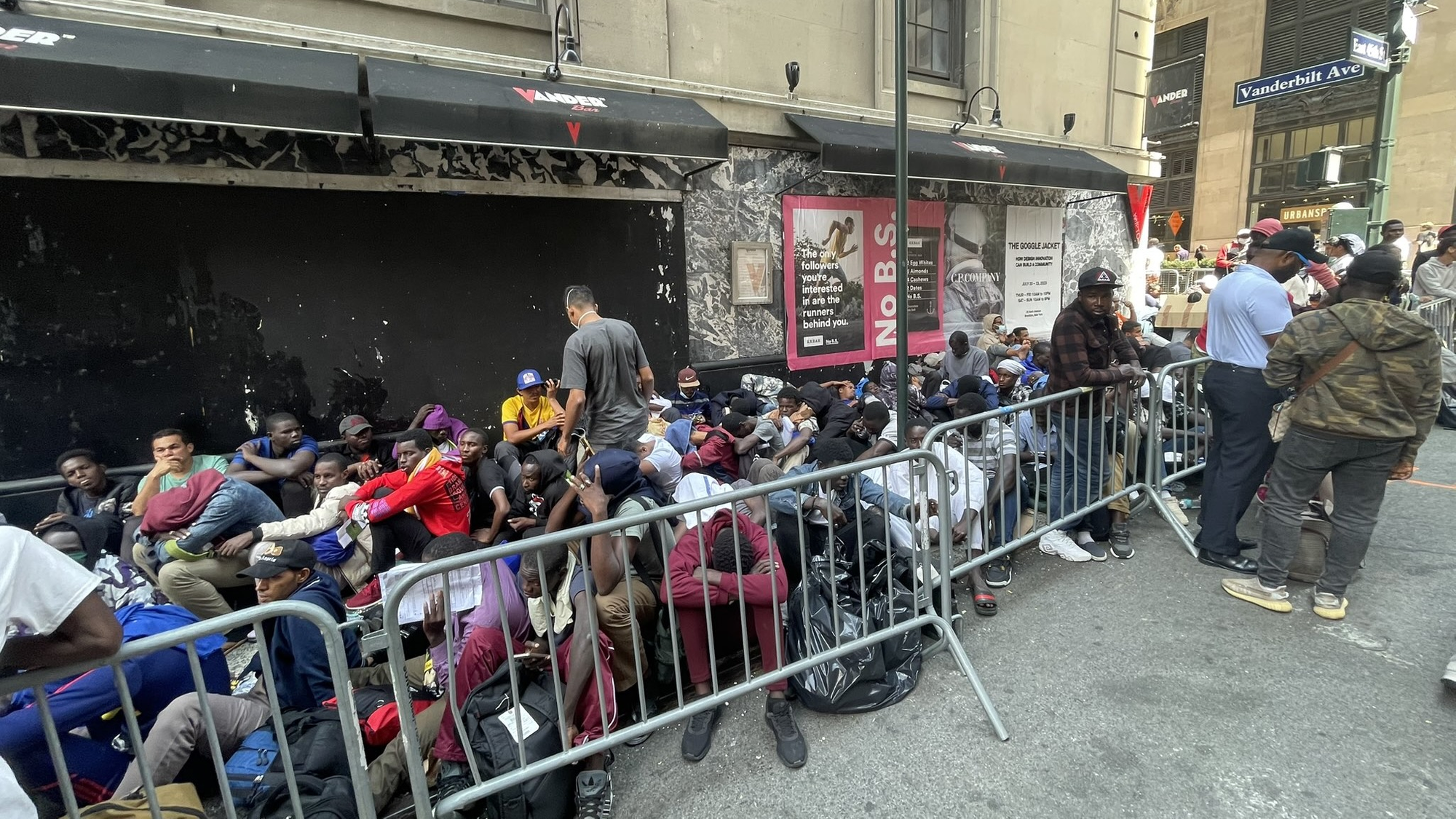As the glitz and glamour of New York City's opulence continue to dazzle the world, an underlying crisis of homelessness and migrant struggles casts a stark shadow. The soaring skyscrapers and bustling streets belie a harsh reality where migrants seeking asylum and shelter are met with cold bureaucratic walls. The recent events outside a Midtown Manhattan hotel serve as a poignant reminder of the harsh consequences of an unchecked capitalist system and U.S. policies.
In the first days of August, around 200 migrants from countries plagued by violence and economic turmoil, such as Mauritania, Ecuador, Chad, Venezuela, Burundi, Peru, and Colombia, gathered outside a hotel, seeking shelter that was in short supply. Despite the city's "right to shelter" law, which legally obligates New York City to provide refuge to those who ask, these migrants were left to sleep on the streets, their aspirations for safety and a better life met with indifference.
This crisis is a direct consequence of the convergence of two critical issues: the influx of migrants fleeing violence and economic devastation in their countries, and the city's staggering wealth inequality. As migrants sought refuge, Mayor Eric Adams, standing in the midst of a city with more billionaires than anywhere else, declared, "We have no more room in the city."
New York City, boasting extreme wealth that outshines entire G20 nations, houses over 100,000 people in shelters. Yet, with billions amassed by the city's millionaires and billionaires, resources remain untapped. This wealth is often undertaxed, allowing the elite to avoid their responsibility towards societal well-being. Housing vacancies, coupled with a lack of regulations on vacant apartments, exacerbate the crisis. In 2021, almost 90,000 rent-stabilized apartments and a total of 456,600 units lay vacant, many reserved as recreational properties.
The heart of the issue is an unchecked capitalist system that prioritizes profit over people. While the city's elite revel in their fortunes, the less privileged are left to grapple with homelessness and insecurity. The migrants' plight reflects a larger pattern of exploitation and neglect fueled by a relentless pursuit of capital gains.
Amid this turmoil, the migrants' calls for change echo loudly. They demand a more efficient bureaucracy that respects their rights and grants work permits promptly. The desperation in their voices reveals the harsh realities they face, trapped in a system that perpetuates suffering.
The crisis at the heart of New York City's streets serves as a microcosm of global capitalism's inhumanity. It exposes the hypocrisy of a city that boasts staggering wealth but turns a blind eye to those in need. The struggles of these migrants are a testament to the failings of a system that favors the rich and disregards the marginalized.
As we confront these stark realities, it's imperative to stand against such a system that perpetuates inequality and inhumanity. Solidarity among the working class, progressive movements, and those who value justice is essential. Only through collective efforts can we challenge the capitalist structures that perpetuate suffering and create a world that values human lives over profits.

